The Second Carbon Neutrality Forum for Doctoral Students was successfully held at Tsinghua University. From November 23 to 25, the forum attracted over 300 experts, scholars, and young students from 110 universities, research institutions, and enterprises both domestically and internationally. A total of 94 oral presentations, 109 posters, and 18 innovation and entrepreneurship projects were selected for on-site display, with more than 274,000 online viewers watching the live broadcasts of the opening and closing ceremonies.
On the morning of November 24, the opening ceremony took place in Tsinghua University’s main building. Leaders including Yang Bin, Vice President of Tsinghua University, Chen Zichen, Vice President of the Association of Chinese Graduate Education, and He Kebin, Academician of the Chinese Academy of Engineering and Dean of the Institute for Carbon Neutrality at Tsinghua University, delivered speeches. Academician Jin Yong from Tsinghua University’s Department of Chemical Engineering and Yan Gang, Deputy Director of the Environmental Planning Institute of the Ministry of Ecology and Environment, gave keynote speeches at the opening ceremony, which was hosted by Lu Xi, Assistant to the Dean of the Institute for Carbon Neutrality at Tsinghua University.

During his speech, Yang Bin emphasized that Tsinghua University is committed to serving the major strategic needs of the country and must take on responsibilities and make contributions in the face of the grand social transformation towards carbon neutrality, actively fulfilling the important mission of cultivating talent for national carbon neutrality.
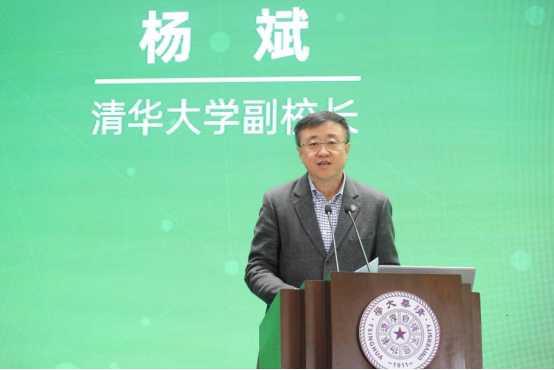
Chen Zichen stated that the association will continue to promote high-quality development in graduate education and strengthen comprehensive cooperation with Tsinghua University to jointly cultivate high-level innovative talents in the field of carbon neutrality in China, supporting the reform and innovative development of the country’s degree and graduate education.
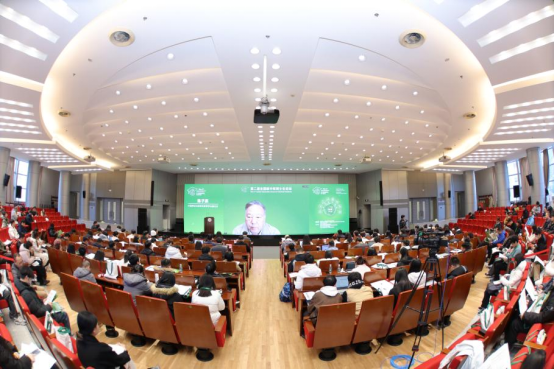
He Kebin noted that the forum coincides with the upcoming 28th United Nations Climate Change Conference, highlighting the significant gaps in commitments, funding, technology, and talent in achieving global carbon neutrality. He expressed hope that the forum would help cultivate a new generation of leading talents in the field of carbon neutrality for the country and the world.
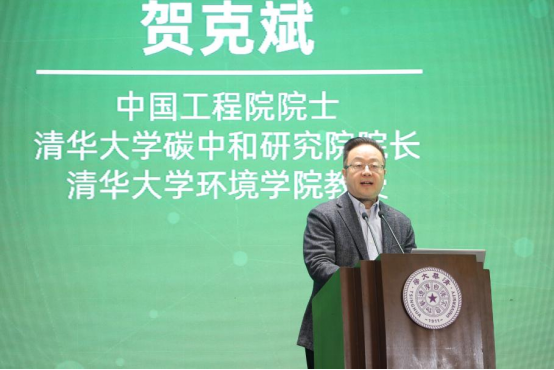
Following this, Academician Jin Yong delivered a keynote report titled “Opportunities for Technological Innovation and Entrepreneurship under Carbon Neutrality.” He pointed out that the path to carbon peaking and carbon neutrality in China over the next 40 years will be an era of transformation from industrialization to informatization, a renewable energy era, a nuclear fusion energy era, a transition from fossil fuels to fossil resources, and an era of resource recycling. He emphasized that carbon peaking and carbon neutrality must align with China’s economic development, requiring early planning, steady progress, and the establishment of exit mechanisms for related industries to avoid significant shocks. He also stressed the need for disruptive technological innovations to change the industrial structure, shifting from primary product production to high value-added, refined, and intelligent products, while utilizing renewable energy to rationally and wisely balance economic development and ecological civilization construction.
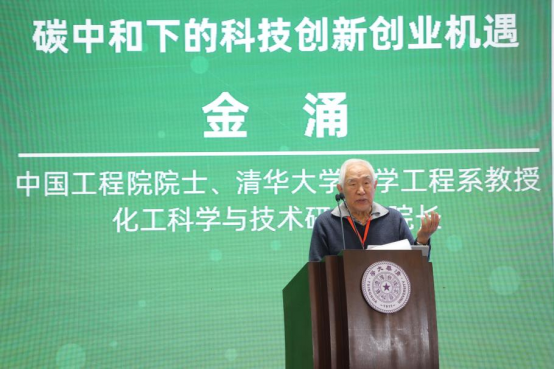
Yan Gang delivered a keynote report on “The Construction and Development of China’s Carbon Market.” He systematically introduced the connotation and framework of the carbon market, the construction process and achievements of China’s carbon market, and the reforms and innovations in its development. He pointed out that future efforts should focus on key core issues in carbon market construction, expand the coverage of the carbon market across industries, continuously optimize the allocation mechanisms and methods for carbon market quotas, and establish effective market supply-demand and price regulation policies to enhance the role of the carbon market. Additionally, he highlighted the importance of linking China’s carbon market with international markets and establishing a climate cooperation and exchange platform through the carbon market.
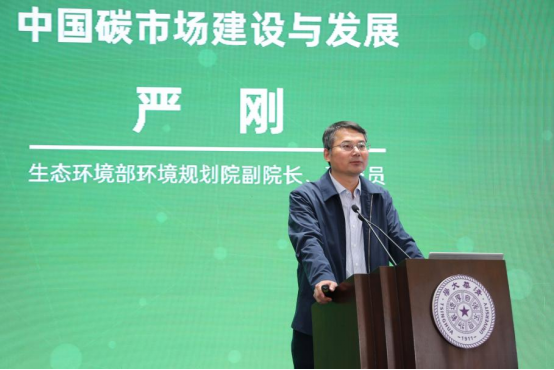
The opening ceremony was also attended by Sun Xin, Deputy Dean of the Institute for Carbon Neutrality at Tsinghua University, Feng Fan, Vice President of ExxonMobil China Public and Government Affairs, Sun Fu, Director of the Graduate School’s Training Office at Tsinghua University, and Wu Hongjie, Deputy Secretary-General of the China Carbon Neutrality 50 Forum. The forum showcased posters in the main hall of Tsinghua University, where poster authors introduced their research findings to attendees.
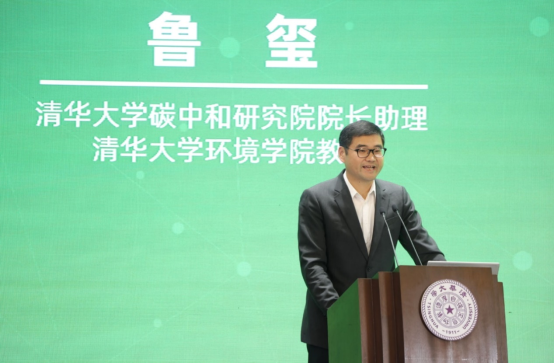
The forum featured ten sub-forums held at Tsinghua University’s School of Environment, covering six major themes: new energy systems and storage, low-zero carbon industry, low-zero carbon transportation, low-zero carbon buildings, carbon neutrality policy economics and management, and carbon sinks and CCUS (carbon capture, utilization, and storage) technologies. Two innovation and entrepreneurship sub-forums presented seed projects led by current students and growth projects led by young alumni. This year, the forum also introduced an international academic sub-forum, which was well-received by young scholars from overseas universities in the field of carbon neutrality.
Renowned experts in the field of carbon neutrality delivered keynote reports at each sub-forum. Experts such as Wang Can, Professor at Tsinghua University’s School of Environment, Li Jizhen, Professor at the School of Economics and Management, Wang Zhi, Professor at the School of Vehicle and Mobility, Liu Jianguo, Professor at the Solid Waste Control and Resource Utilization Research Institute, Zhao Lei, Professor at the Nuclear Energy and New Energy Research Institute, Xie Xiaoyun, Professor at the School of Architecture, Xu Tong, Researcher at the University of Cambridge, Tong Dan, Assistant Professor at Tsinghua University’s Department of Earth System Science, and Wu Hongjie, Researcher at the China Carbon Neutrality 50 Forum, delivered insightful keynote reports. The innovation and entrepreneurship sub-forums also invited well-known industry investors to provide feedback and pose questions to the projects. Additionally, poster exhibitions were held during the breaks between sub-forums to further facilitate exchanges among participants.
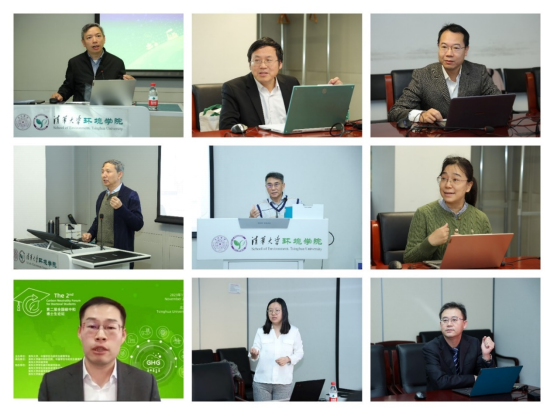
On the afternoon of November 25, the closing ceremony was held in the lecture hall of the School of Environment. Sun Xin, Deputy Dean of the Institute for Carbon Neutrality, attended the closing ceremony and awarded honorary certificates to the authors of outstanding works. Xu Mao, Deputy Director of the Forum Organizing Committee and PhD student at Tsinghua University’s School of Environment, summarized the conference. Representatives of outstanding works, including Tao Shengyu from Tsinghua University Shenzhen International Graduate School, Liu Xinyi from Shanghai Jiao Tong University, and Yan Huangyu from Taiyuan University of Technology, delivered oral reports at the closing ceremony. The closing ceremony was hosted by Zhong Yijing, the Director of Technology Communication at the Institute for Carbon Neutrality.

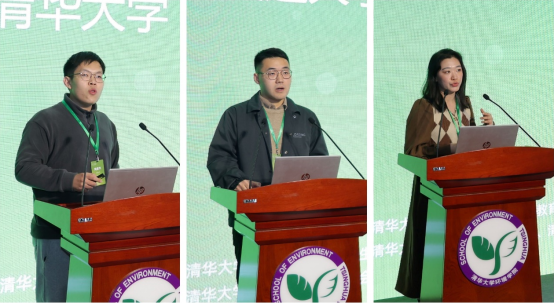
The forum aimed to align with the major strategic needs of China’s carbon neutrality goals, break down professional barriers, and build a cross-disciplinary, high-level, and innovation-promoting “dual carbon” exchange platform for young scholars at home and abroad, contributing to the cultivation of national carbon neutrality talent and the integration of industry, academia, and research. Participants expressed that they gained a lot from the forum and looked forward to attending the third Carbon Neutrality Forum for Doctoral Students next year.
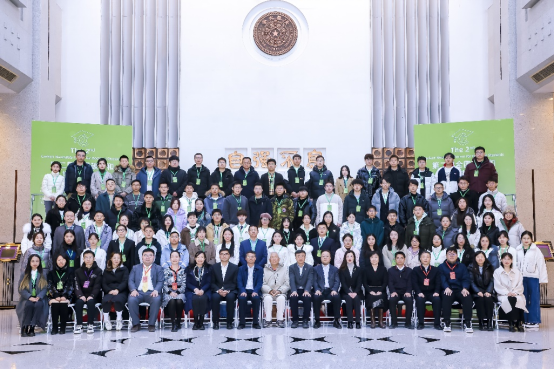
 Latest recommendations
Latest recommendations


